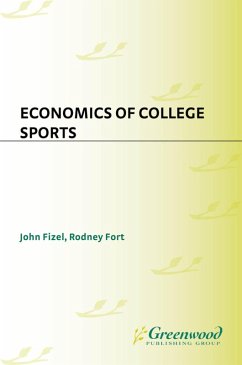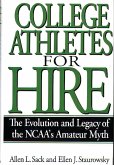Operating behind a veil of amateurism, the NCAA and collegiate athletic departments oversee big business sports programs. These entities generate revenues comparable to professional sports, practice and play in facilities that rival those found in professional sports, and pay their top coaches salaries comparable to the salaries paid to coaches of professional sports teams. Athletes are courted with lavish stadiums, training facilities, and locker rooms. Customers are wooed with branded apparel, videos, logos, and advertisements. Business interests are captured with stadium billboards, electronic ads on scoreboards, sponsorship of bowl games, logos on uniforms, and exclusive apparel and equipment contracts. Where do, or should, these lucrative athletic ventures fit in the mission of higher education? To what extent is the central mission of creating an environment for learning and extending the frontiers of knowledge enhanced or limited by college sports? Are declarations by the NCAA to promote amateurism and competitive balance supportive of the university mission? Does the NCAA even follow its purported objectives?
The Economics of College Sports contains both empirical and theoretical research to address these and related issues. Perhaps the most unique contributions focus on the interactions between legal and institutional aspects of the NCAA and their impact on the objectives and goals of university education; all of the contributions provide insights that will generate significant discussion about the policies necessary to sustain the vitality and integrity of the university education-sports coalition.
The Economics of College Sports contains both empirical and theoretical research to address these and related issues. Perhaps the most unique contributions focus on the interactions between legal and institutional aspects of the NCAA and their impact on the objectives and goals of university education; all of the contributions provide insights that will generate significant discussion about the policies necessary to sustain the vitality and integrity of the university education-sports coalition.









